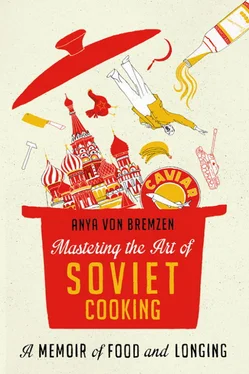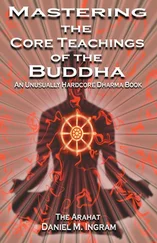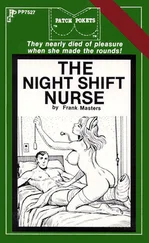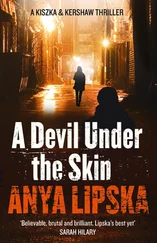Actually, the person who knew all about Lenin and the mausoleum was my father, Sergei.
In the seventies, Dad worked at an inconspicuous two-story gray mansion near the Moscow Zoo on the Garden Ring, discreetly accessed through a courtyard. Most passersby had no clue that this was the Ministry of Health’s Mausoleum Research Lab, where the best and brightest of science—some 150 people in many departments—toiled to keep Lenin looking his immortal best under the bulletproof glass of his sarcophagus. The hand-washing and sterilizing of his outfit, of his underwear, shirts, vests, and polka-dot ties, were strictly supervised at the lab, too, by a certain zaftig comrade named Anna Mikhailovna. A physics of color guy, Dad manned the kolorimeter , monitoring changes in the hue of Lenin’s dead skin. (In his seven years there, there weren’t any.)
Dad and those of his rank of course were never allowed near the “object” itself. That required top security clearance. Mere mortal researchers practiced on “biological structures”—cadavers embalmed in the exact same glycerin and potassium acetate solution as the star of the show. There were twenty-six practice stiffs in all, each with its own name. Dad’s was “Kostya,” a criminal dead from asphyxiation and unclaimed by relatives. On Dad’s first day his new colleagues watched cackling as he nearly fainted at a display of severed heads. It was a pretty gruesome, over-the-top place, the lab. Embalmed limbs and fetuses bobbed in the basement bathtubs. But my father quickly got used to the work. In fact, he came to quite like it, he says. Because it was classified as dangerous to employees’ health, the job brought delightful perks. Shortened work hours, a free daily carton of milk, and, best of all, a generous monthly allotment of purest, highest-grade spirt (ethyl alcohol). In his reports, Dad noted the alcohol’s use for cleaning “optical spheres,” but he often came home with the robust smell of mausoleum spirits on his breath. Behold Soviet science.

I was sufficiently older and smarter by the time of my father’s necroemployment that Lenin no longer bewitched and bothered me. But certain curiosities linger even today, such as:
What did Lenin and his fellow Bolshevik revolutionaries actually eat?
Mom, on the other hand, has no such curiosity. “Over my dead body!” she almost bellows at my suggestion that we reproduce some Lenin-esque menus. Although she does chuckle when I mention Dad’s pet cadaver. Her own memory of his mausoleum days is just the alcohol breath, and she doesn’t find that one amusing.
Mom has her own notions of how the 1920s should be dealt with gastronomically. Rightly, she characterizes the decade as a fractured chaos of contradictory utopian experiments and concessionary schemes leading nowhere—all forgotten once Stalin’s leaden hand fell in the thirties.
“For us today,” she propounds, ever the culture vulture, “the Soviet twenties are really remembered for the writers. And the avant-garde art—the Maleviches, Rodchenkos, and Tatlins on museum walls all over the world!”
So besides digging into family history for her grandmother’s gefilte fish recipe, Mom assigns herself the task of leafing through art albums to troll for food references.
And I’m left to tackle Lenin. Dedushka Lenin.
From my kindergarten nanny, Zoya Petrovna, I knew that her dear Vladimir Ilyich Ulyanov was born in 1870, some 430 miles from the Kremlin, in the provincial Volga town of Simbirsk. Volodya (the diminutive of Vladimir) was the smart, boisterous third child of six in a large and happy family. At the cozy Ulyanov homestead there were musical evenings, tea in the garden gazebo, gooseberry bushes for the kids to raid. Mom Maria—a teacher of Germanic and Jewish descent—cooked stolid Russo-Germanic fare. The family enjoyed Arme Ritter (“poor knights,” a German French toast) and lots of buterbrodi , the open-faced sandwiches that would become staples of our Soviet diets. About the proverbial apple cake reliable scholarly sources are silent, alas.
The Ulyanovs’ idyll ended when Volodya was sixteen. His father died from a brain hemorrhage. The next year his older brother Alexander was arrested and hanged for conspiring to assassinate the czar. Most historians see Alexander’s fate as the trauma that radicalized the future Bolshevik leader. They also acknowledge the influence of Alexander’s favorite book, Chto delat’? or What Is to Be Done? In 1902 Vladimir Ilyich borrowed the title for a revolutionary pamphlet he signed using for the first time his adopted name: Lenin.
The original was penned in 1863 by an imprisoned socialist, Nikolai Chernyshevsky, and is widely acknowledged as some of the most god-awful writing ever spawned under the northern sun. A didactic political tract shoehorned into a breathtakingly inept novel, it gasses on and on about free love and a communal utopia populated by a “new kind” of people. Writers as disparate as Nabokov and Dostoyevsky mocked it. And yet, for future Bolsheviks (Mensheviks too) the novel wasn’t just inspirational gospel; it was a practical guide to actually reaching utopia.
Vera Pavlovna, the book’s free-loving do-goodnik heroine, inspired Russian feminists to open labor cooperatives for poor women. And Rakhmetov, its Superman of a revolutionary, became the model for angry young men aspiring to transform Russia. Half Slavic secular saint, half Enlightenment rationalist, this Rakhmetov was ascetic, ruthlessly pragmatic, and disciplined, yet possessed of a Russian bleeding heart for the underprivileged. He abstained from booze and sex and grabbed his forty winks on a bed of nails to toughen up—a detail gleefully recalled by any former Soviet teen who slogged through a ninth-grade composition on What Is to Be Done ?
And to eat?
For Rakhmetov, an oddball “boxer’s” diet sufficed: raw meat, for strength; some plain black bread; and whichever humble fare was available (apples, fine; fancy apricots, nyet).
As I reread Chto delat’? now, this stern menu for heroes strikes me as very significant. Rooted in mid-nineteenth-century Russian liberal thought, culinary austerity—not to say nihilism—was indeed the hallmark of the era’s flesh-and-blood radicals and utopians. The father of Russian populism, Alexander Herzen—Chernyshevsky’s idol, admiration alas unreturned—had condemned the European petite bourgeoisie’s desire for “a piece of chicken in the cabbage soup of every little man.” Tolstoy preached vegetarianism. Petr Kropotkin, the anarchist prince, avowed “ tea and bread , some milk… a thin slice of meat cooked over a spirit lamp.” And when Vera Zasulich, a venerated Marxist firebrand, was hungry, she snipped off pieces of wretchedly done meat with scissors.
True to the model, Lenin qua Lenin ate humbly. Conveniently, his wife, Krupskaya, was a lousy cook. On the famous “sealed” train headed for Petrograd’s Finland Station in 1917, Lenin made do with a sandwich and a stale bread roll. During their previous decade of European exile, the Bolshevik first couple, though not poor, dined like grad students on bread, soups, and potatoes at cheap boardinghouses and proletarian neighborhood joints. When she did cook, Krupskaya burned her stews (“roasts,” Lenin called them ironically). She even made “roast” out of oatmeal, though she could prepare eggs a dozen ways. But she needn’t have bothered: Lenin, she reported later, “pretty submissively ate everything given to him.” Apparently Lenin didn’t even mind horsemeat. Occasionally his mother would send parcels of Volga treats—caviar, smoked fish—from Simbirsk. But she died in 1916. So there were no such treats in 1918 when her son and daughter-in-law moved into the Kremlin, by the wall of which I would later brood over the endless line for the mausoleum.
Читать дальше













